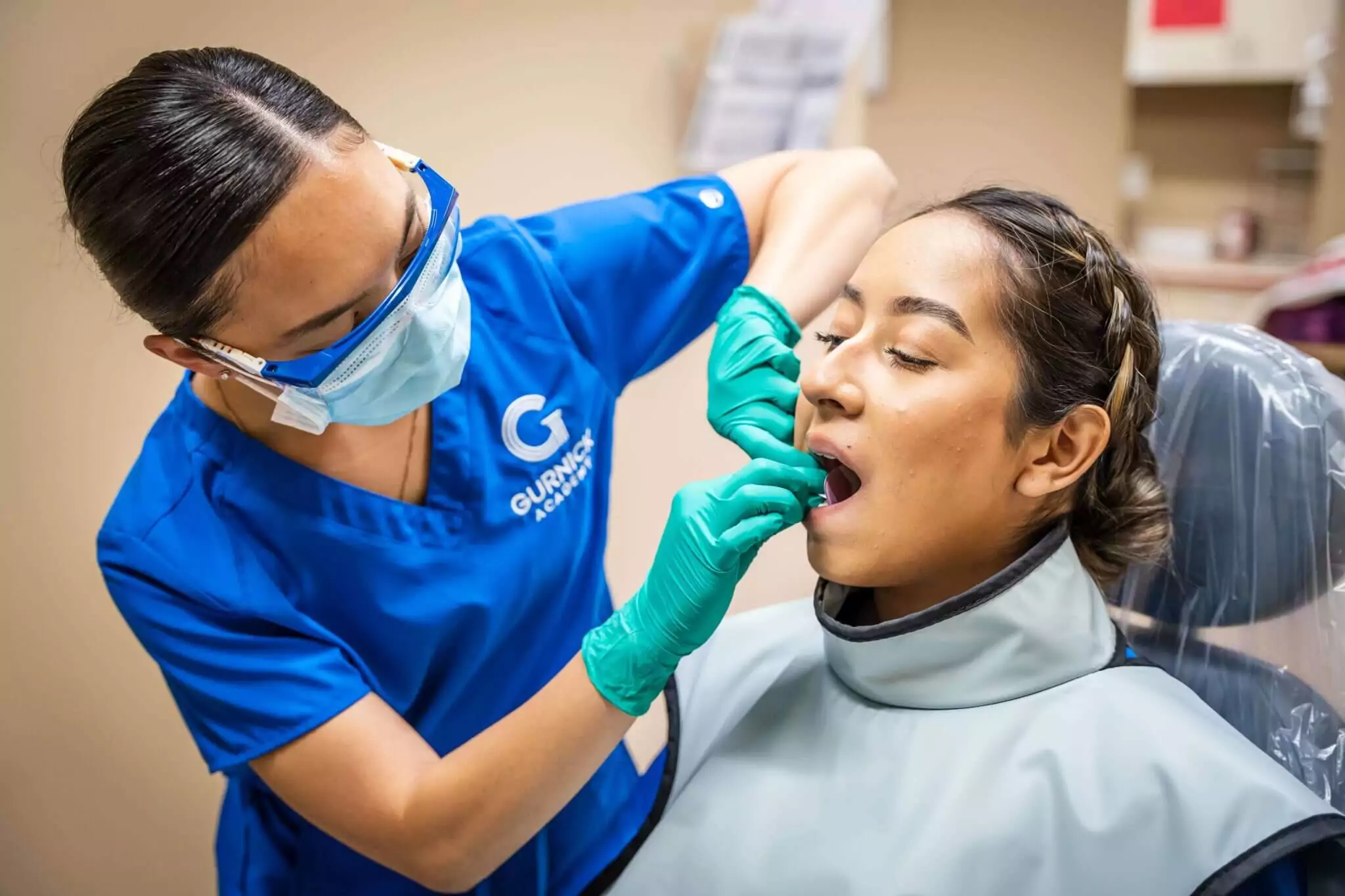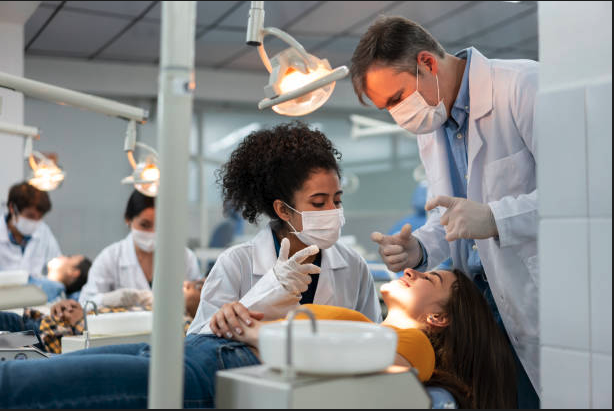Table of contents
Get Started with Kwikly
Get the latest updates, insights, and exclusive content delivered straight to your inbox.
Are you thinking about dental hygiene school? The tuition’s going to run you somewhere between $22,000 and $30,000, but costs can vary depending on whether you choose a college, university, or community college. You’ve got supplies and fees that can really add up on top of that. We’ll break down what you’re actually looking at cost-wise and talk about ways you can make it work financially.
Key Takeaways
- You’re looking at tuition anywhere from $22,000 to $36,382, and it really depends on what kind of degree you’re going for and where you decide to go - associate degrees are usually easier on your wallet.
- Public schools are going to be cheaper than private ones, and they tend to have more financial aid options too, so that’s something to keep in mind.
- The majority of students who apply for financial aid receive some form of support, making financial assistance accessible for most applicants.
- Don’t forget about all the other stuff you’ll need - textbooks, instruments, and just basic living expenses can really mess with your budget if you’re not planning for them.
Tuition Costs for Dental Hygiene Programs
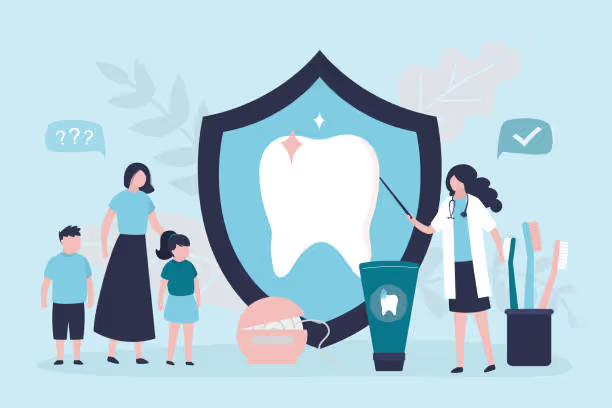
If you’re thinking about dental hygiene school, you need to know what you’re getting into financially. According to the American Dental Education Association (ADEA), dental hygiene program costs can vary widely, and ADEA is a key resource for guidance on dental hygiene education and understanding the expenses involved. On average, you’re looking at tuition anywhere from $22,000 to $30,000, and that depends on things like what kind of school you pick and whether you’re staying in-state. These costs can really mess with your budget, so it’s worth understanding the different types of programs and what they’ll actually cost you.
When it comes to dental hygiene program costs, associate degrees are going to be easier on your wallet. You’re looking at around $22,692 for an associate degree, while a bachelor’s will run you about $36,382 on average. But don’t think tuition is all you’ll pay. There’s all the other stuff – materials, equipment, fees – and that can add up to anywhere from $25,000 to $50,000 depending on where you go.
The type of dental hygiene program and school you pick makes a huge difference in what you’ll pay. Community colleges are way more affordable than four-year universities. So it’s worth taking a hard look at your options and figuring out what works best for both your education goals and your bank account. Choosing the right dental hygiene program is essential for meeting your educational and financial objectives.
Let’s break down what associate and bachelor’s programs actually cost, so you know exactly what you’re dealing with. Understanding the structure of dental hygiene education helps you plan for both program costs and your future career.
Associate Degree Programs
If you want the most bang for your buck, associate degree programs are usually your best bet. Most community colleges offer these programs, and you’re looking at tuition between $5,000 to $15,000 for the whole thing. That’s pretty reasonable if you’re trying to keep costs down. Keep in mind, you should also factor in the costs of individual dental hygiene courses, and look into available payment options or financial assistance to help manage these expenses.
The average total for tuition and fees comes out to about $22,692 if you’re an in-state student. That number can jump around depending on where the school is and whether you’re from that state or not.
Community colleges just cost less than four-year schools – it’s that simple. If you’re watching your money, they’re definitely worth considering.
Bachelor's Degree Programs
Bachelor’s programs are mostly at universities and private schools, and they’re going to cost you more. You can expect to pay around $36,382 for a bachelor’s degree in dental hygiene.
These programs throw in more comprehensive coursework and general education classes, which is part of why they cost more. A lot of schools will help you out with scholarships and financial aid, but you still need to plan for the higher tuition and all the extra costs that come with a bachelor’s program. Additional costs may also be incurred during the first year, especially for summer sessions or introductory courses.
Comparing Public and Private Dental Hygiene Schools
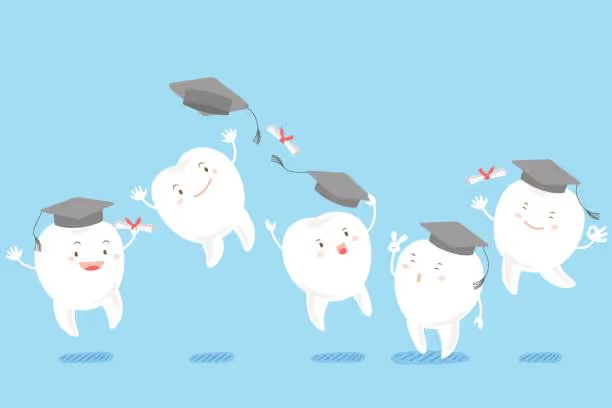
Public Institutions
Public dental hygiene schools are usually your best bet if you’re watching your budget. These schools can save you serious money, especially if you’re an in-state resident. Community colleges are even cheaper than four-year schools, which is great if you’re going for that associate degree in dental hygiene.
Here’s the thing about public schools - they often have more financial aid options because of state funding and grants. Public institutions typically have more funds available for grants and scholarships, thanks to state support. That extra help can make a real difference when you’re trying to keep your education costs manageable.
Private Institutions
Private dental hygiene schools are going to cost you more upfront, but they offer some perks that might be worth it. You’ll get smaller class sizes and more one-on-one time with your instructors. If you’re the type who does better with more personal attention, this could be a game-changer for you.
Plus, private schools often have newer equipment and nicer facilities that can make your whole experience better. They may also provide enhanced campus resources and student support services, giving you access to on-campus opportunities that support your education. Yeah, you’ll pay more, but a lot of students think it’s worth it for the quality of education and opportunities they get.
Additional Expenses for Dental Hygiene Students
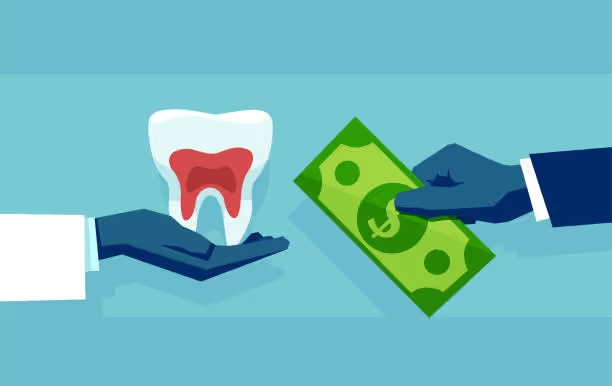
You’re probably wondering about the costs beyond tuition. Here’s the thing - there are quite a few extra expenses you’ll want to plan for, including:
- Supplies (such as instrument kits)
- Uniforms
- Examination fees
- Other program-specific fees
When you’re putting together your budget, factoring in these costs means you won’t get hit with surprises later on.
You’re looking at spending around $1,000 on textbooks and roughly $5,499 on instruments and student kits. Certain supplies and equipment must be purchased upfront as part of the program requirements. These numbers add up fast, so it’s smart to plan ahead and figure out ways to keep these costs manageable.
Let’s break this down into two main areas you’ll be dealing with: textbooks and supplies, and room and board for your two years in the program.
Textbooks and Supplies
Your textbook costs are going to run you anywhere from $500 to $1,000 per year, depending on where you’re studying. But here’s what you really need to know - you’ll also be buying essential supplies and equipment, like dental instruments and kits. These costs can vary quite a bit, but they’re absolutely necessary to get through your program.
Some expenses for textbooks and supplies can be covered by scholarships or grants that do not need to be paid back, helping to reduce your out-of-pocket costs.
Here’s what you’re looking at: about $2,800 for instruments in your first semester and $4,400 in your second semester. Yeah, it’s a chunk of change, so you’ll want to budget for this stuff right from the start of your dental hygiene journey.
Room and Board
If you need housing while you're in school, living expenses are going to be a big part of your budget. These costs are all over the map depending on where you are and how you're living, but you're typically looking at $10,000 to $15,000 per academic year for housing and meals.
When you're pursuing dental hygiene, these living expenses can really take up a big part of your overall budget. Planning for this stuff is key - you want to focus on your studies without stressing about money.
Financial Assistance Options for Dental Hygiene Students
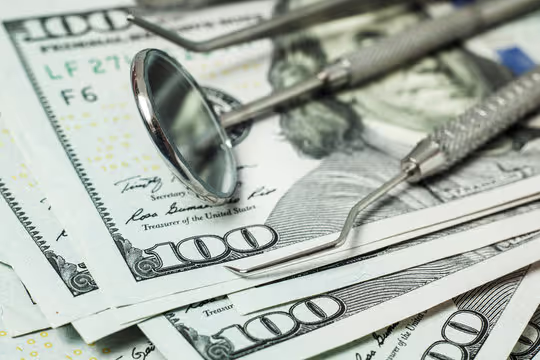
Now the question is: "How am I going to pay for it?" Maybe you’re stressed about the costs, or maybe you’re just trying to figure out your options. The good news? There are ways to make it work without breaking the bank. There are various financing options available to help fund your dental hygiene education, making it easier to manage expenses.
You’ve got several paths to choose from:
- Scholarships
- Federal student loans
- Federal financial aid
- Work-study programs
These options can take a huge weight off your shoulders when it comes to paying for dental hygiene school.
Let’s break down each of these so you can see what might work best for your situation.
Scholarships and Grants
Here’s the best part about scholarships for dental hygiene students – you don’t have to pay them back. That’s money in your pocket, plain and simple. You’ll find merit-based ones if you’ve got good grades, need-based ones if money’s tight, and some that are specifically for minority students or people who want to work in underserved areas. Scholarships and grants are typically granted based on eligibility, achievements, or financial need.
Scholarships are game-changers because they cut down what you’ll owe later. If you put in the time to apply for scholarships and grants, you’re looking at way less stress about tuition and everything else that comes with school.
Federal Student Loans
To get federal student loans, you’ll need to fill out the FAFSA – that’s the Free Application for Federal Student Aid. You must also be eligible based on specific criteria such as financial need, academic achievement, or residency status to receive federal student loans. It’s not the most fun paperwork you’ll ever do, but it’s worth it. Federal loans come with lower interest rates than private ones, so you’re not getting hit as hard down the road.
There’s also the Public Service Loan Forgiveness Program that can wipe out or seriously reduce what you owe if you qualify. And if you’re willing to work in rural or underserved areas after you graduate, you can get some serious help paying off those loans.
Work Study Programs
Work-study programs let you:
- Make money while you’re learning stuff that actually matters for your career
- Work part-time in jobs that connect to what you’re studying
- Build up your skills while you’re at it
- Cut down on what school’s going to cost you
Maintaining good attendance is important for success in work-study programs, as it impacts your academic performance and ability to keep your position.
When you’re in a work-study program, you’re killing two birds with one stone – getting real experience and earning money to help cover your expenses. The process of applying for work-study positions usually involves submitting an application and going through eligibility checks, so be sure to understand each step. Balancing your work hours with academic commitments is key to making the most of a work-study program. It’s a smart way to handle the financial side of dental hygiene school.
Making Your Money Work for Dental Hygiene School
You’re going to want a solid budget that covers tuition, books, supplies, and just living your life while you’re in school. Since students often have limited opportunities to work while attending dental hygiene school, budgeting becomes even more important. Getting your budget right from the start means less stress and fewer surprises when bills come due.
Let’s talk about how to set up a budget that actually works and how to keep debt from taking over your life.
Setting Up Your Budget
If you’re smart about budgeting from day one, you can keep costs manageable and avoid piling up debt that’ll follow you around after graduation. Make sure you’re accounting for everything so there aren’t any nasty surprises. Plan your budget around the academic calendar, considering expenses that may come up during different semesters.
Keeping Debt Under Control
You’ll want to understand your student loan options inside and out – interest rates, repayment terms, all of it. The sooner you figure out your repayment strategy, the less you’ll stress about it later.
Once you’re done with dental hygiene school, focus on paying off those student loans with consistent monthly payments and look into different repayment options. Your future income as a dental hygienist can help you manage and repay your student loans more effectively. Stay on top of your debt and you’ll set yourself up for long-term financial stability.
What Dental Hygienists Actually Do
Dental hygienists are essential players in healthcare – they’re the ones promoting oral health and preventing problems before they start. A strong dental education is essential for preparing dental hygienists to meet industry standards and best practices. The job market’s looking good too, with a projected 9% growth from 2023 to 2033. That means there’s real demand for what you’ll be doing.
Let’s look at what you’ll actually be responsible for and the services you’ll provide.
Preventive Care
As a dental hygienist, you'll focus on preventive care through regular cleanings and teaching patients how to avoid oral health problems. You'll handle clinical tasks like taking X-rays and doing oral health assessments to give patients comprehensive care.
The combo of patient education and clinical assessments is crucial for preventing oral health issues and keeping people's smiles healthy.
Patient Services
When patients come to you for regular cleanings and check-ups, you're catching potential problems before they turn into big, expensive issues. Through those regular assessments, you'll spot early signs of systemic diseases and help get patients the medical referrals they need.
Beyond cleanings, you'll help develop treatment plans that make sense for each patient's unique situation. You'll also give personalized advice on maintaining oral health – proper brushing techniques, what to eat, that kind of thing.
The Bottom Line on Dental Hygiene School Costs
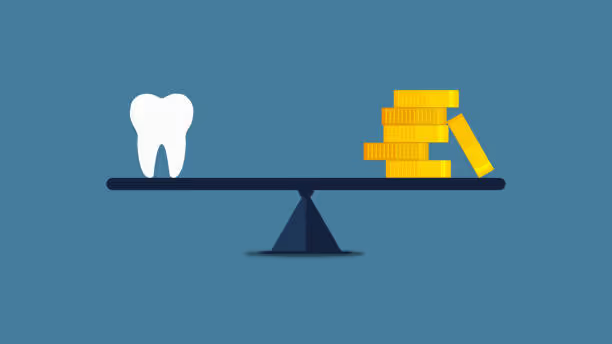
The total cost of dental hygiene school varies depending on the location, type of program, and individual circumstances.
What You Need to Know About Paying for Dental Hygiene School
Maybe you’re excited about the career but worried about the money, or maybe you’re just trying to figure out if it’s worth it. Here’s the thing - dental hygiene school does cost money, but there are ways to make it work without breaking the bank.
You’ll be looking at tuition, books, supplies, and living expenses. The total can add up quickly depending on where you go and whether you’re an in-state student or not. But here’s what’s good - there are scholarships, grants, and federal loans out there to help you cover these costs.
The smart move? Budget well from the start. Careful consideration of loan eligibility and application requirements is important when planning how to pay for dental hygiene school. That way, you’re not drowning in debt when you graduate, and you can actually enjoy the good salary that comes with this career.
Let’s break down what you’re really looking at for costs and what the job market looks like for dental hygienists.
What You'll Actually Pay
For a bachelor’s degree in dental hygiene, you’re looking at around $36,382 for the whole program. On top of that, count on spending about $3,500 for textbooks and dental kits over the course of your studies.
To give an example, if you borrow $40,000 at a 5% interest rate and choose a 10-year repayment plan, your monthly payment would be about $424, and the total cost over the life of the loan would be approximately $50,880.
These numbers might seem big, but they’re not surprises if you plan ahead. You’ve got tuition, fees, books, supplies, and your living expenses to think about. When you know what’s coming, you can figure out how to handle it without the stress.
Your Job Prospects Look Good
Here’s some news that’ll make you feel better about those costs - the job market for dental hygienists is solid. We’re talking about 9% growth over the next decade, which means plenty of opportunities when you graduate. And as of 2024, dental hygienists are pulling in a median salary of $94,260 a year. Salary figures and job opportunities are subject to change based on market conditions and geographic location.
That’s real money for work in healthcare that doesn’t require a four-year medical degree. If you’re someone who wants to work in health but doesn’t want to spend a decade in school, dental hygiene is a smart move. Plan your finances right, and you’ll have a career that pays well and keeps you busy.
Bottom Line
Look, understanding what dental hygiene school costs and planning for it is just part of getting where you want to go. When you know about tuition, extra expenses, financial help that’s available, and how to budget smart, you can make decisions that don’t stress you out financially. Monthly payment plans can be a great option for students who want to manage tuition costs without taking on large loans. With good job prospects and financial aid options out there, going into dental hygiene is a choice that makes sense and pays off.
Questions You're Probably Asking
How much does an associate degree in dental hygiene cost?
You're looking at somewhere between $5,000 and $15,000 at community colleges for an associate degree. Don't forget to factor in books and supplies when you're figuring out your budget.
What other expenses should I expect as a dental hygiene student?
You'll need to budget for textbooks, dental instruments, uniforms, exam fees, and your living costs. All of that can add up to about $6,500 or more on top of tuition.
Can I get scholarships for dental hygiene school?
Absolutely. There are plenty of scholarships out there for dental hygiene students, whether you need financial help or you've got great grades. It's worth your time to look around and see what fits your situation.
How do I apply for federal student loans for dental hygiene school?
You'll need to fill out the FAFSA - that's the Free Application for Federal Student Aid. It's the first step to see what kind of federal funding you can get for school.
What's the job outlook like for dental hygienists?
It's looking good. We're seeing 9% growth projected from 2023 to 2033, which means steady demand and job security. Plus, that median salary of around $94,260 makes it worth the investment in school.




